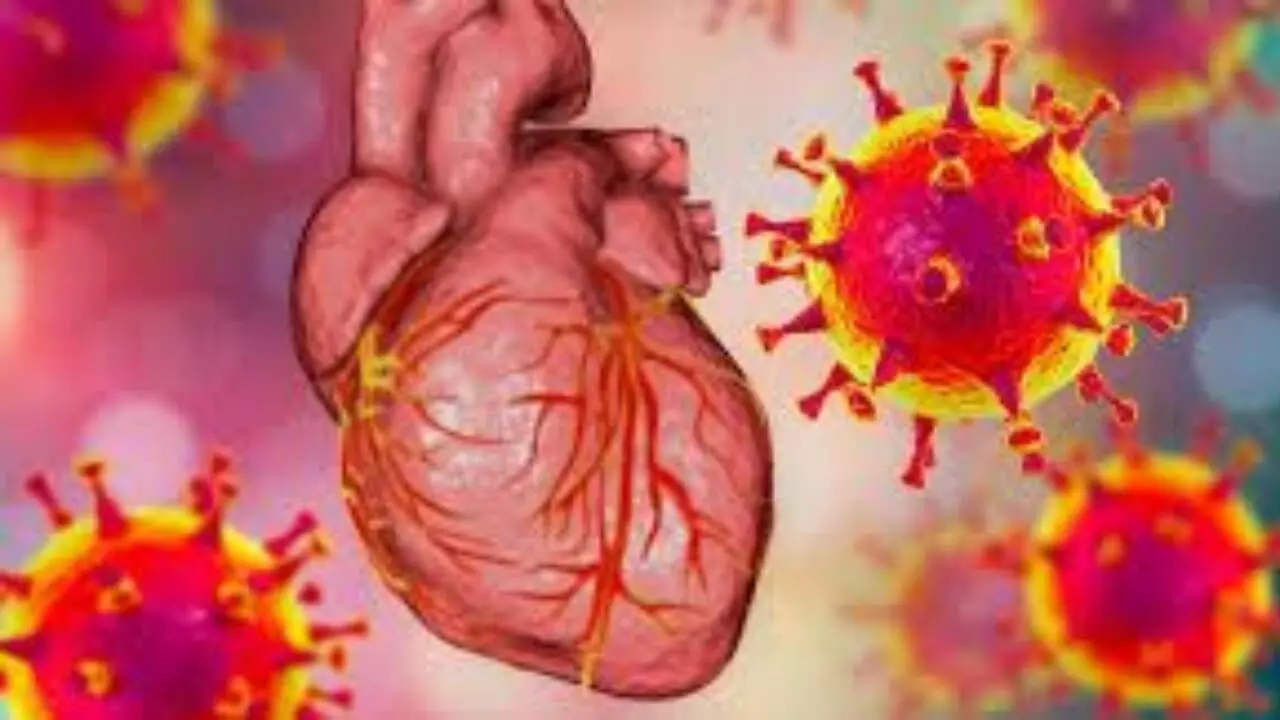Covid link to heart attacks unravelled
Indian scientists provide crucial evidence
image for illustrative purpose

Mumbai: The COVID-19 pandemic has left a profound impact on global health, affecting millions worldwide. While most discussions have focused on respiratory complications, a growing concern has emerged regarding the surge in heart-related ailments post-COVID recovery. Many survivors have reported increased incidents of heart attacks and strokes, but the exact reason behind this alarming trend remained elusive—until now.
A groundbreaking study conducted by Indian scientists Dr Parth Sarthi Sen Gupta and Prof Shashi Singh from DY Patil International University, Pune, in collaboration with Dr Saroj Kumar Panda from the University of Texas, USA, has provided definitive scientific evidence explaining this phenomenon. Their research, published in the prestigious ACS Pharmacology and Translational Science, uncovers how the spike protein of the COVID-19 virus directly impacts heart health.
Spike protein of the SARS-CoV-2 virus binds with the ACE2 protein found in heart muscles and blood vessels. This interaction weakens the heart, impairing its ability to function efficiently. Furthermore, the virus does not stop at merely weakening the heart. Once inside the human body, it also interacts with fibrinogen, a crucial blood protein responsible for clot formation, finding of the study.
This binding leads to an increase in blood clot formation, disrupting normal circulation and significantly raising the risk of heart attacks. The research also highlights another troubling aspect—this interaction dampens the body's immune response, making recovered patients more vulnerable to infections in the long run. This discovery carries immense significance for both scientists and medical practitioners. COVID-19 survivors face an increased likelihood of thrombosis (blood clot formation), which can lead to heart attacks and strokes. The study suggests that using anticoagulant therapies could help reduce clotting risks in patients recovering from COVID-19.
These findings will assist healthcare professionals in monitoring post-COVID cardiovascular complications more effectively. The research can play a pivotal role in shaping future healthcare policies and treatment strategies to prevent post-COVID heart-related complications.

